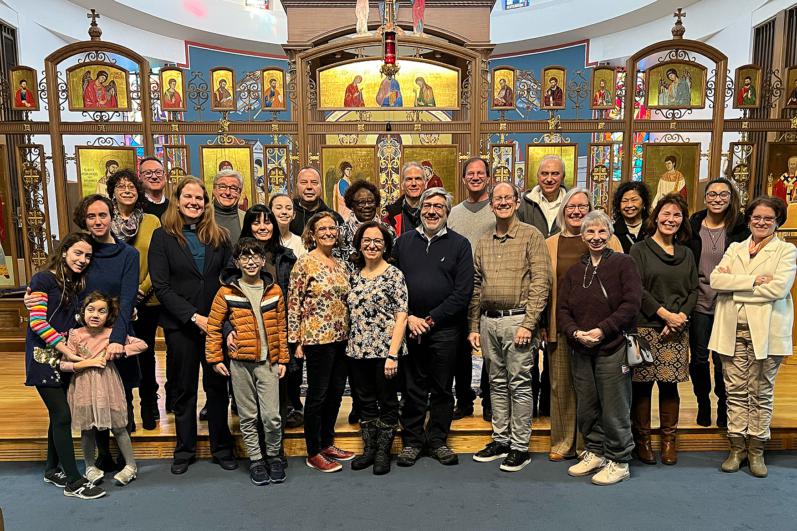Ecumenical service marks Week of Prayer for Christian Unity
BRAINTREE -- From Jan. 18 to 25, the octave of Sts. Peter and Paul, the Archdiocese of Boston once again observed the global Week of Prayer for Christian Unity. Most notably, the archdiocese participated in a day of prayer, conversation, and meditation across Christian communities at the Annunciation Melkite Catholic Cathedral in West Roxbury.
"It was a huge blessing to have the chance to do that," Vito Nicastro, co-director and founding fellow of the Institute for Christian Unity and associate director of the Archdiocese of Boston Office for Ecumenical and Religious Affairs, told The Pilot in a Jan. 30 interview. "We are upholding our commitment as disciples of Jesus, whose hope was that all of his followers may be one, and he very specifically prayed for that."
Catholic, Protestant, and Orthodox Christians gathered at the cathedral for what Nicastro described as "one coordinated act of prayer, and a demonstration of love for one another."
He said it was "fascinating" to interact with Christians from so many different denominations.
"It's a beautiful and enriching experience for the people who were there," he added.
This year's theme, chosen by the Dicastery for Promoting Christian Unity, the World Council of Churches, and the Christian Churches in Burkina Faso, was "You shall love the Lord your God ... and your neighbor as yourself."
The Jan. 21 event was hosted by the Chemin Neuf ecumenical Catholic community and the Boston-area communities of the Focolare Movement. The Focolare Movement was founded in Italy in 1943 and approved by the Catholic Church in 1962. It has over 2 million members in 182 countries, representing a variety of Christian churches and world religions.
"Its goal is to promote brotherhood and to achieve a more united world in which people respect and value diversity," Michael James, an education professor at Boston College and member of the Focolare Movement, told The Pilot in a Feb. 1 interview. "To achieve this goal, people of the movement engage in various forms of dialogue and are committed to building bridges of fraternal relationships among individuals, between cultural groups and every area of society."
James hopes that someday, all Christian denominations will be in full communion with the Catholic Church, while retaining their distinct identities. He believes this is possible "because we see that God wants it."
"The spirituality of the Focolare certainly sees hope as an important part of Christian witness," he said.


















